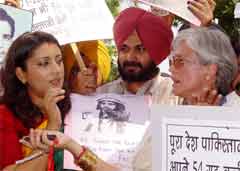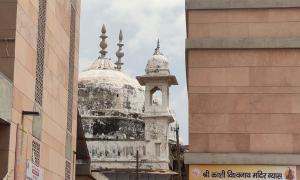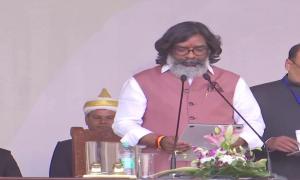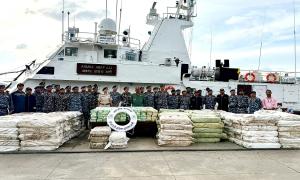A delegation of relatives of 54 prisoners of war missing since the 1971 war met President A P J Abdul Kalam and demanded the formation of a special cell to coordinate and monitor the demands for early release of prisoners from Pakistani jails. Member of Parliament from Amritsar Navjot Singh Sidhu, actress Smriti Irani and noted social activist Nafisa Ali formed part of the delegation.

Speaking to rediff.com after the meeting with Kalam, Sidhu said they had a good meeting with the President and that he was hopeful that once Kalam takes interest in the matter, the defence personnel who have been held by Pakistan since the Bangladesh war would be able to return home sooner than expected.
"We had a 25 minute meeting and submitted a memorandum to the President giving him details of the prisoners in Pakistani jails. The President asked to submit the statements of those who have seen these prisoners in the Pakistani jails and send the same to him at the earliest. He is taking keen interest in the matter. We will send him all the relevant documents at the earliest so that he can start work at his end. I am going to raise the issue in the coming session of Parliament. When a small country like Kuwait can get its POWs released, why not us? They created a special ministry to deal with this matter and raised it in the United Nations, but here in India the government is not prepared to listen to us," Sidhu said.
Nafisa Ali and Smriti Irani, who took part in protest march from Jantar Mantar to Parliament police station on Sunday morning, raised slogans of Bharat Mata Ki Jai. In fact, Irani's lung power surprised everyone including the journalists as this was the first time that she was seen shouting slogans with full-throated voice.
One of the noted features of the demonstration was the participation of Muslim children who carried placards demanding the release of the Indian prisoners of war.
Damyanthi Thambe, director of sports in Jawaharlal Nehru University and former national badmiton champion and Arjuna awardee, was one of the participants. Her husband Flight Lt V V Thambe was on a mission in Pakistan when his plane was shot down on December 4, 1971, deep inside Pakistani territory. "I have been living on the hope that he will one day return home. I am hopeful and that is why I am here," she told rediff.com.
Some of the families of the POWs had travelled from Poonch and Rajouri, Udhampur sectors of Jammu and Kashmir. Since 1966 the issue regarding the missing defence personnel has been raised in the parliament atleast a dozen time but there was no singificant response from the government of India. "Our government is doing nothing to seek the release of our near and dear ones," said the relatives of the missing personnel.
While the government of Pakistan maintains that there were no prisoners of war in Pakistan, there were persons who had been released from the Pakistani jails participating in the demonstrations who said that they had seen some of the officers of the Indian army in shabby conditions in Pakistani jails.
"I have seen Flight Lt Thambe in Pakistan during my interrogation in the Multan jail. He was mentally sick and I wonder if he is still alive," said Kishori Lal, of Ludhiana, who claimed to have spent eight years in Pakistani jails before he was released from Kot Lakhpat Jail in 2000. He claimed to be working for the Indian military as a spy in Pakistan when he was arrested in 1992.
Another person by the name of Bhogal Ram also claimed that he had seen one prisoner from Nanak Nagar of Jammu region in a Pakistani jail. "I saw Subedar Asa Singh. He had long white hair and a long beard. I could snatch glimpses of him when he was taken out of his cell in the morning for going to toilet," he said.
Though workers of the Bhartiya Janata Party participated in the demonstrations, the Congress party did not bother to send even a message.
The seriousness of the demonstration was undermined by the presence of some public relations agencies who claimed that the daughter-in-law of Bihar Governor Buta Singh was behind these demonstrations.








More from rediff